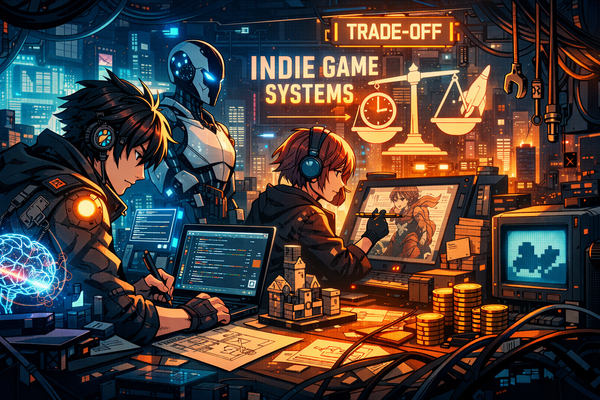Why iteration is better than perfection in indie game development
There’s often a temptation to pursue perfection—to craft a flawless product before release. While the desire to perfect every detail is understandable, it can also be counterproductive. Iteration, the process of repeatedly refining a product based on feedback and testing, offers a more practical and effective path to success. Here’s why focusing on iteration is better than striving for perfection in indie game development.
The trap of perfection
Perfectionism in game development can lead to significant delays, increased costs, and often results in a product that is over-engineered without ever being released. Trying to create the “perfect” game in one go can stifle creativity and flexibility. When teams focus too much on achieving an ideal outcome from the outset, they can become paralyzed by analysis, stuck in a loop of constant refinement without progress. This phenomenon, often referred to as “analysis paralysis,” can hinder innovation and progress(DEV Community)(Junvic's Developer Portfolio).
In the world of indie development, where resources are often limited, chasing perfection is not only unrealistic but can also mean missing out on valuable player feedback. Waiting too long for a perfect product can prevent developers from releasing something that can be improved upon based on real-world experiences.
The power of iteration
Iteration, on the other hand, allows developers to release a functional version of their game early and improve it over time through cycles of feedback, testing, and refinement. This approach is deeply rooted in agile development practices, where the focus is on progress over perfection(DEV Community)(Techopedia). Iteration enables developers to:
- Foster creativity: When the pressure to be perfect is removed, creativity can thrive. Developers are more likely to experiment with bold ideas, knowing that adjustments can be made later based on feedback(DEV Community).
- Receive Real-World feedback: Instead of guessing what players want, iterative development allows developers to gather feedback directly from users. This feedback is invaluable for identifying problems, discovering what players enjoy, and ensuring the game evolves in a direction that resonates with its audience(Video Game Design and Development)(DEV Community).
- Make incremental improvements: Each iteration builds on the previous one, allowing for gradual, manageable improvements. This reduces the risk of large-scale failures and ensures that the game is always evolving in response to actual player behavior, rather than assumptions(Junvic's Developer Portfolio).
- Accelerate Time-to-Market: By releasing a “good enough” version of the game early, developers can get their product into the hands of players quickly. This strategy not only allows for faster market entry but also helps generate buzz and revenue earlier in the development process(DEV Community).
How iteration works in indie games
The iterative process can be broken down into several key stages that are repeated over time: planning, design, coding, testing, and evaluation(Techopedia). After each cycle, the game is re-evaluated based on player feedback, and adjustments are made accordingly. This method ensures that the game remains adaptable and responsive to the needs of its audience while continually improving.
A great example of this approach in practice is the success of games developed under early access models, like Hades. By releasing a playable version early, developers Supergiant Games were able to gather valuable player feedback, iterating on everything from mechanics to story elements, which resulted in a more polished final release(DEV Community).
Progress over perfection
While the pursuit of perfection can seem noble, it often leads to stagnation in game development. Iteration offers a far more sustainable approach, allowing indie developers to make steady progress while keeping the creative process flexible and adaptive. By embracing iteration, developers can deliver engaging games that continually improve based on real-world feedback, ultimately leading to better results than aiming for perfection from the start.




